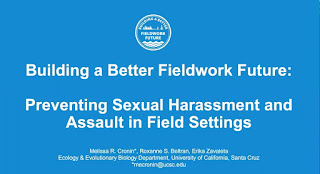ESF's 6th Women's Empowerment Brunch invited participants, panelists, and keynote to consider ways to Make (or Reclaim) Space.
Emcee Emily Li (EnvStudies 2022) introduced Dr. Emily Stewart, Senior Director of Education & Curation, at Syracuse's Museum of Science and Technology who discussed the ways the MOST has become more accessible for a variety of community members, including sensory friendly exhibits; reduced admission for veterans and active military, and EBT users; as well as supporting community science educators and youth science competitions. (Families with middle schoolers: check out their partnership with TACNY, called Jr Cafe, which provides a free program with continental breakfast and free museum admission, generally 3rd Saturdays during the academic year.) Panelists Alice Olom and Martikah Williams, co-founders of Black Artist Collective; Dr. Marcelle Haddix, Distinguished Dean's Professor of Literacy, Race and
Justice in the Reading and Language Arts department in Syracuse
University's School of Education; and ESF students Sachi Segan (EnvStudies 2022) and Isabella Fiorese (EnvScience 2023) answered questions about finding space, allyship, and ways of moving forward.
Panelists shared the necessity of resting, setting boundaries, and surrounding themselves with supporting people, and the challenge and exhaustion:
of "having to act white" and the overwork of silent labor. Women and other marginalized identities have to always be ready to respond to emails, even while on vacation. One panelists who hails from a "collectivist, family-centered background" and being told by elder family members "Don't be too loud, Black and proud" for fear of risking citizenship process.
When asked how allies can make space for marginalized identities: show up and speak up! Challenge authority and speak for those who cannot. Panelists countered with "are you educating yourself? Going where you are uncomfortable so others can be more so? Thinking about and learning the details taught in Title IX training?" They also noted that the question is upsetting because folks SHOULD know what an ally is by now, and label "ally" is used performatively, without active engagement or demonstrative effort. Are so-called allies giving something up? Shifting power dynamics, leaving positions of privilege? Its an intersectional question with many layers. Fighting for Black people, Black LGBTQIA+, Black Muslims, fighting for and with. Are allies standing up for these, even when they are not in the room?
In what ways can we move forward and make space? Be honest that every day is a new challenge and that women have to fight all the time, especially Black women. Acknowledge that its OK to "just be" for a minute. Work with Cafe Sankofa and Women's Health, taking up brick and mortar with the 15th ward, understand what's happening with the I-81 project. Land acknowledgements are empty; how do they lead to reconciliation of the violence that led to the use of these spaces? BAC's mission is to interrupt, disrupt, break down barriers and speak to what's happening in our community, at any or multiple scales.
Questions from the audience: How do you physically create boundaries? Takes practice, be specific. Acknowledge what's causing you harm. Understand what YOU need to be fully present. May need to intentionality pause to figure out what your balance looks like.
When confronted with the phrases "Just take care of yourself" or "you should have said something", flip the script "I am struggling to establish boundaries, but I need them." Start small--it takes 21 days to create a habit. One panelists had to unlearn "yes" because was working self to sickness. For black women in particular, stories that are empowering but overwhelming, the protagonist is always strong. Can we be fragile or vulnerable?
If boss does not respect need for rest, it's time to go. A tip: Review your job description. If what you are asked to do is not listed, use that to negotiation. Review other people's job descriptions, and call folks out when they aren't doing their jobs. "You are director of _____; that's your job (and not _____'s).
Suggestions: Read White Fragility and How to be an AntiRacist, all of it! More POC on boards, front money and invest in people and businesses that do the work. PAY for the Training, go in with other organizations to cover the costs. 1-3 POC out of 500 is not enough.
Panelists love Gen Z, who are open and forward and use social media to call out, build up, and hold accountable.
Last thoughts: SU (academia?) has to come down from The Hill. College has a utopian aspect, and college community should be more involved in community organizations like Black Cuse pride, BAC. which are small organizations that are constantly doing the work. Bring elements back to ESF and SU.
Be a good person, be more thoughtful, leave it better than you found it.
The 2021 WEB was presented by the Baobab Society and the ESF Women's Caucus, in collaboration with The Writing Resource Center, Poetry Society, ESF Bookstore, Green Campus Initiative, and the Environmental Studies Student Organization, with support of the Undergraduate Student Association, Counseling Center, Vera House, and the Sustainability Office. Organizers particulary wish to thank Chris from Vera House and Ruth from Counseling Services for being available for anyone in need of support, Christopher from ITSmedia for sound system set up (and providing student support during the event itself), as well as Bliss Bakehouse, Fat Cat Baking, Mello Velo, Recess Coffee for working with our budgets and guidance to deliciously meet dietary and low-waste constraints.





